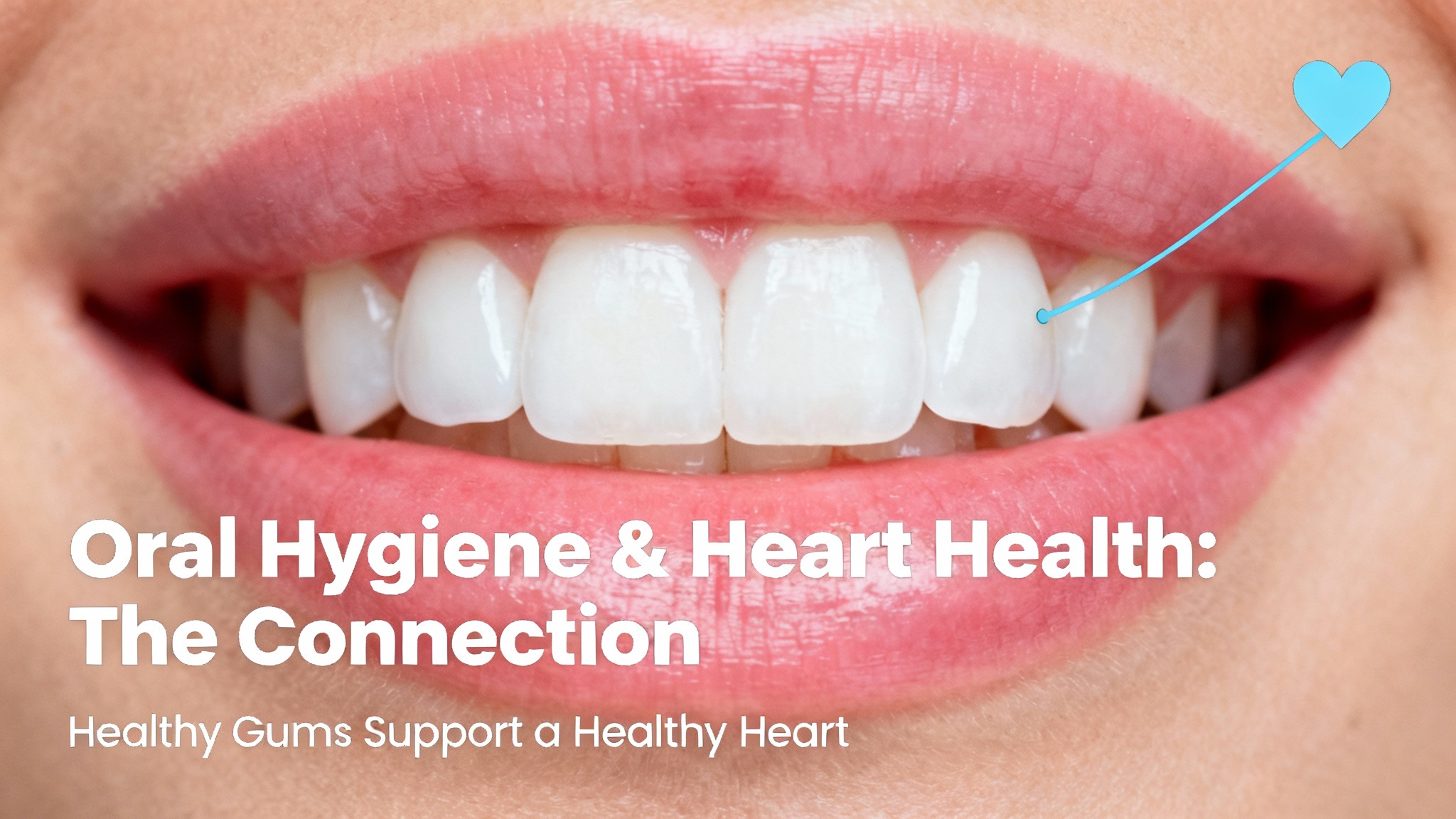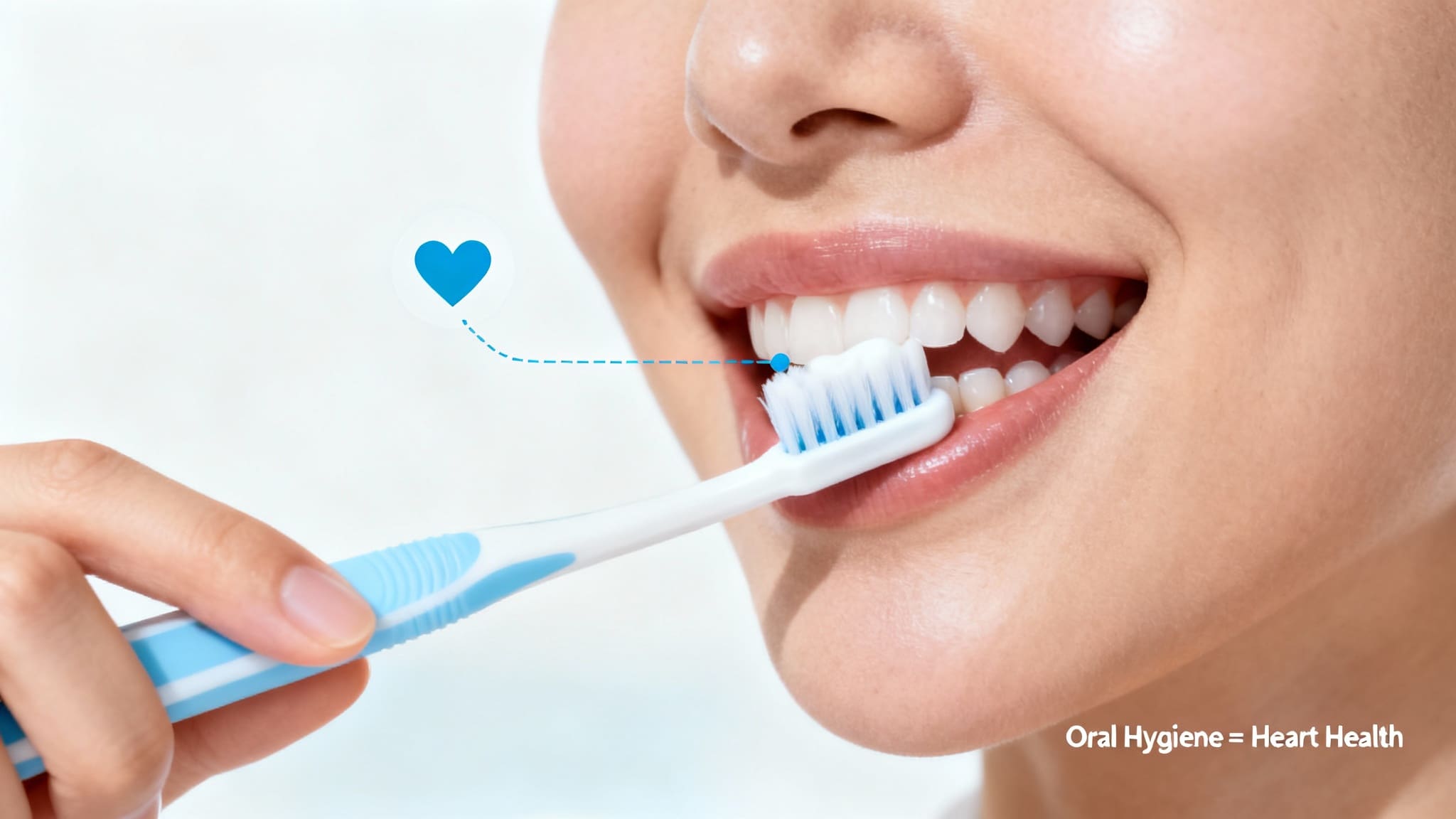Introduction
Heart health and optimal heart function are influenced by a variety of lifestyle and medical factors, but did you know oral health is a powerful—yet often overlooked—component? Research increasingly shows that periodontal disease, inflammation, and the quality of your daily oral hygiene can substantially affect cardiovascular risk. Maintaining great oral health is not just about your smile: it is a critical step in preventing heart disease, supporting treatment outcomes, and ultimately achieving an optimal heart. This article will examine how upgrading your oral hygiene habits can positively influence your cardiovascular health, outline the latest scientific findings, and provide actionable steps for a healthier life.
What is Periodontal Disease, Inflammation, and Practical Oral Hygiene Upgrades to Lower Risk?
Periodontal disease is a chronic inflammatory condition affecting the tissues that support teeth (gums, ligament, and bone). It is caused mainly by bacterial plaque accumulation along the gumline, leading to infection and subsequent inflammation. Over time, untreated periodontal disease can result in tooth loss and has been linked to systemic health issues—including increased risk for heart disease. Recent discoveries highlight how oral inflammation can contribute to cardiovascular problems by facilitating the spread of bacteria and inflammatory markers into the bloodstream, influencing overall heart health (Tonetti & Van Dyke, 2013).
Practical oral hygiene upgrades—such as proper brushing and flossing technique, the use of antibacterial mouthwashes, and regular dental checkups—are powerful strategies to reduce this inflammation and, by extension, reduce overall cardiovascular risk (Sanz et al., 2020).
Benefits and Outcomes in Heart Disease
Numerous studies have shown a strong association between gum disease and increased risk for developing heart disease (Lockhart et al., 2012). Chronic inflammation from periodontal disease can trigger systemic responses, promoting arterial plaque formation, worsening hypertension, and increasing the likelihood of clot formation. Elevated C-reactive protein (CRP), a marker of inflammation, has been linked to both periodontal disease and cardiovascular events (Libby et al., 2016).
Upgrading daily hygiene habits can significantly lower these risks. Studies show that effective oral care reduces systemic inflammatory markers and improves endothelial function—the ability of blood vessels to contract and relax as needed for optimal heart health (Tonetti et al., 2007).
Research Insights
Recent systematic reviews and clinical trials confirm the oral-systemic connection. A landmark review in the Journal of the American Heart Association reported that patients with severe periodontal disease had a 20% higher risk of developing heart disease than those with healthy gums (Lockhart et al., 2012). Another 2020 meta-analysis in J Clin Med demonstrated that periodontal treatment significantly decreased systemic inflammatory biomarkers and improved heart health outcomes (Sanz et al., 2020).
Furthermore, a 2020 clinical study showed that when individuals adopted upgraded oral hygiene routines—brushing twice daily, flossing, and using mouthwash—they saw measurable reductions in markers linked to cardiovascular events (Yokoyama et al., 2020). These findings underscore how investing in your oral health may be a powerful step for achieving an optimal heart.
Practical Applications
To reduce cardiovascular risk and support optimal heart health:
- Brush teeth thoroughly twice daily using a fluoride toothpaste.
- Floss daily to remove plaque and food between teeth and below the gumline.
- Rinse with antiseptic mouthwash when appropriate (Yokoyama et al., 2020).
- Schedule dental checkups and cleanings at least twice a year.
- Consider lifestyle factors—such as quitting smoking and maintaining a balanced diet—which further support oral and heart health (Tonetti & Van Dyke, 2013).
All adults, especially those with diabetes or a family history of heart disease, benefit enormously from upgraded oral hygiene routines.

Risks & Limitations
While the connection between periodontal health and heart disease is significant, it is important to acknowledge limitations. Most studies show strong associations, but causality is still debated (Libby et al., 2016). Not everyone with gum disease will develop cardiovascular problems, as genetics, lifestyle, and other risk factors play a major role. Additionally, overtreatment of periodontal issues without medical guidance may be unnecessary and ineffective. Consult your dentist or physician for tailored recommendations (Lockhart et al., 2012).
Key Takeaways
- Poor oral health, particularly periodontal disease, is linked to increased cardiovascular risk and affects heart health.
- Upgrading oral hygiene habits can reduce inflammation, benefiting your optimal heart.
- Scientific evidence supports the link between oral and heart health, though causality is yet to be fully proven.
- Regular dental care is a simple, practical step for better cardiovascular outcomes.
Frequently Asked Questions
1. How does gum disease increase cardiovascular risk?
Gum disease leads to chronic inflammation, which can contribute to arterial plaque buildup and raise cardiovascular risk (Lockhart et al., 2012).
2. Are regular dental checkups really necessary for heart health?
Yes, regular dental visits help detect and control periodontal disease, thus supporting heart health and an optimal heart (Tonetti et al., 2007).
3. Can improving oral hygiene reverse damage to the heart?
While better oral hygiene reduces risk, it may not fully reverse existing heart issues but helps prevent further deterioration (Sanz et al., 2020).
4. Who should be most concerned about oral-systemic health links?
Individuals with diabetes, heart disease, or a family history should prioritize both oral and heart health (Yokoyama et al., 2020).
Suggested Links
- American Heart Association – Oral Health and Heart Disease
- National Institutes of Health – Oral Health
- PubMed – Periodontal Disease and Cardiovascular Risk
Conclusion
Protecting your optimal heart starts with excellent oral care. Sound scientific evidence reveals that periodontal disease and inflammation can increase your risk for heart disease, but you can act now: commit to upgraded daily hygiene, regular dental visits, and holistic health habits. Invest in your oral health today to support your long-term heart health, and consult your healthcare provider for guidance tailored to your needs.



